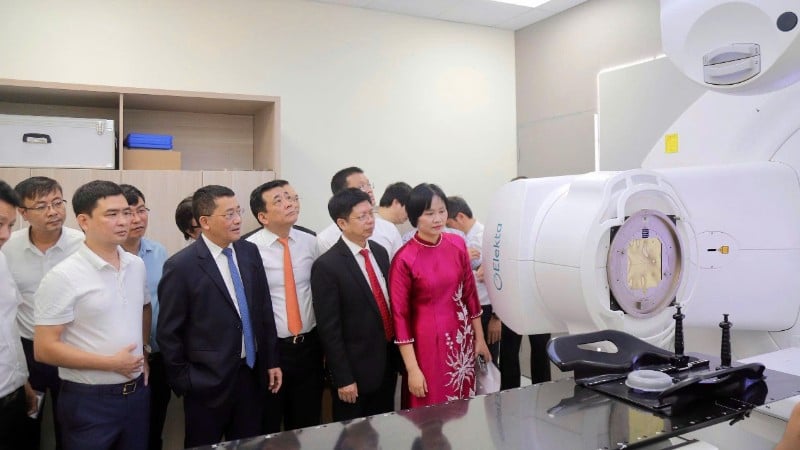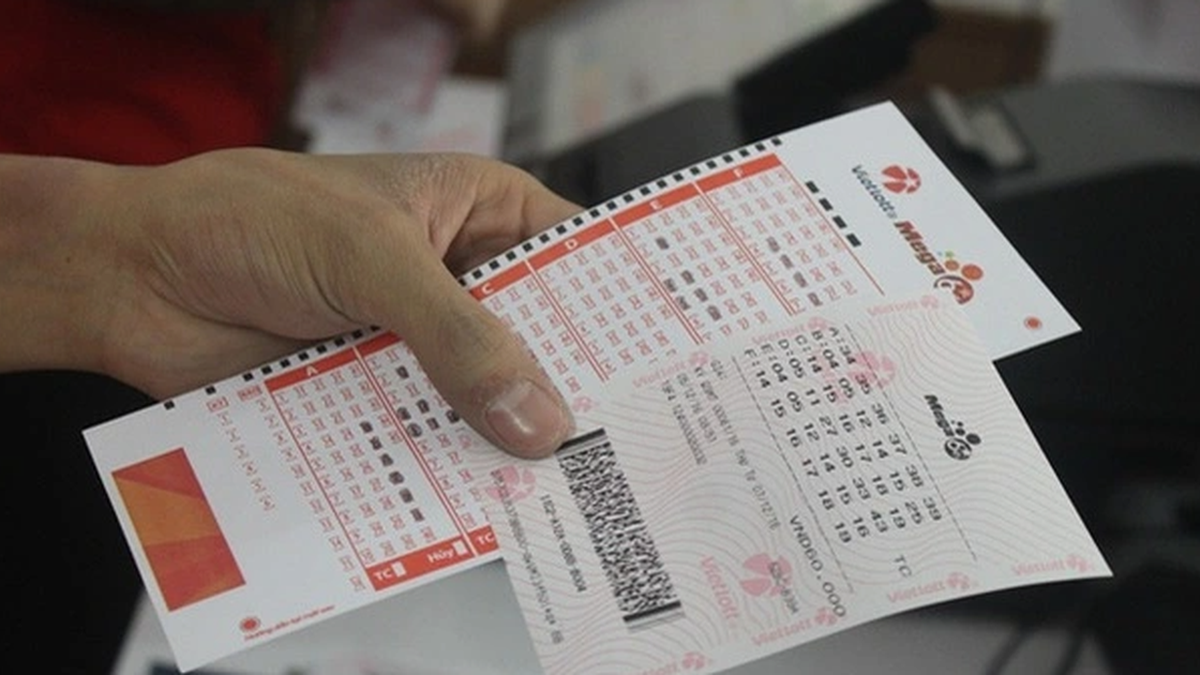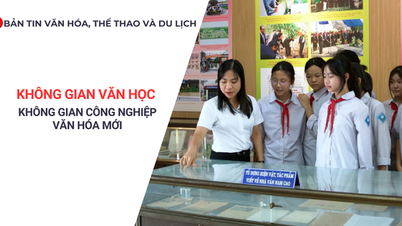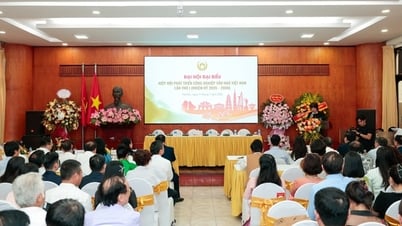
According to statistics from the Ministry of Health , digital transformation is currently being strongly implemented and has achieved many important results. Up to now, 100% of medical examination and treatment facilities have deployed hospital information systems; many medical facilities have deployed electronic health records on VNeID, remote medical examination and treatment, electronic prescriptions, applied artificial intelligence (AI) in disease diagnosis and treatment, used robots, etc.
Vietnam is facing many challenges such as: The rate of population aging is increasing; the rate of non-communicable diseases is increasing; the burden of disease and the disparity in access to healthcare between regions not only reduce the quality of life, but also create a burden on the healthcare system and the state budget... Therefore, the urgent issue now is that Vietnam needs to create a modern, effective, equitable and sustainable healthcare-pharmaceutical ecosystem.
We are actively implementing Resolution No. 57-NQ/TW (dated December 22, 2024) of the Politburo on breakthroughs in science, technology, innovation and national digital transformation along with national goals, aiming to become a developed, high-income country by 2045, in which the health sector becomes one of the important pillars to improve the quality of life, ensure social security and promote sustainable economic growth.
This is a “golden time” when innovation and digital transformation are identified as core driving forces, putting people at the center and people's health as the national foundation.
Recently, in Hanoi, the Forum "Innovation, digital transformation to promote comprehensive and sustainable healthcare, meeting the development requirements of Vietnam in the new era" took place, attracting the participation of many policy makers, management agencies, domestic and foreign experts, businesses operating in the fields of medicine, pharmacy, technology, etc.
At the forum, delegates focused on discussing solutions to promote the development of science, technology, and innovation in priority areas of the health sector; enhance the application of AI; accelerate digital transformation in the field of public health care...
In particular, two breakthrough topics were emphasized: promoting research and development, creating breakthroughs in health care; aiming for a fair and sustainable health system.
These are two topics closely linked to Vietnam's policy orientation, especially Resolution No. 57-NQ/TW. Notably, AI is identified as a tool, a key breakthrough, deeply linked to policy orientation, helping to accelerate the implementation of advanced medical solutions, bringing Vietnam forward quickly on the journey to realizing the 2045 vision.
It is necessary to strongly and comprehensively promote digital transformation in healthcare; effectively deploy electronic health books, electronic medical records, and electronic prescriptions; connect data between the healthcare and health insurance sectors; at the same time, it is necessary to strengthen research, development, and application of science and technology, especially AI, blockchain, big data, and the Internet of Things in providing healthcare services.
(Deputy Prime Minister Le Thanh Long)
Many other contents were discussed such as: Increasing public investment in health to 5% of GDP; ensuring that all people have regular health check-ups and digital health records by 2030; developing smart cities in health; solutions to achieve the goal of putting Vietnam in the Top 3 AI research centers in the health sector in ASEAN. AI will be applied in drug development, precision medicine and disease forecasting.
On the other hand, equitable and high-quality healthcare access for the people also needs to be implemented. This includes expanding health insurance coverage; narrowing the gap between rural and urban areas through telehealth solutions; enhancing digital public services, aiming for equality in access to healthcare...
Already, 80% of pharmaceutical and life sciences professionals are using AI for drug discovery; 95% of pharmaceutical companies are investing in AI capabilities… AI technology is helping pharmaceutical companies shorten the drug discovery process from five to six years to just one year. AI applications have the potential to create $350 billion to $410 billion in annual value for pharmaceutical companies by 2025. Using AI in clinical trials can save 70% of costs and shorten the time to conduct them by 80%.
Deputy Prime Minister Le Thanh Long emphasized that in the coming time, it is necessary to strongly and comprehensively promote digital transformation in healthcare; effectively deploy electronic health books, electronic medical records, and electronic prescriptions; connect data between the healthcare and health insurance sectors; at the same time, it is necessary to strengthen research, development, and application of science and technology, especially AI, blockchain, big data, and the Internet of Things in providing healthcare services.
In addition, promote scientific research, improve the capacity of research centers, laboratories and high-tech facilities, especially in the fields of biotechnology, disease monitoring and early warning, pharmaceuticals and medical equipment.
With a pharmaceutical market serving more than 100 million people, the development of the domestic pharmaceutical industry is of strategic significance, aiming to enhance self-sufficiency in drugs, vaccines, biological products, raw materials and medical equipment, especially research and production of new drugs, invented drugs and high-tech drugs.
The Deputy Prime Minister requested relevant ministries and branches to strengthen public-private cooperation, joint ventures and associations to ensure efficiency and transparency; create favorable conditions for the private sector to invest in providing high-quality healthcare services, scientific research, production of drugs, vaccines and medical equipment; at the same time, strengthen cooperation with countries with advanced science, technology and healthcare in the world; prioritize academic exchanges, joint training of high-quality healthcare and digital healthcare human resources; scientific research and transfer of new and modern technologies.
Source: https://nhandan.vn/can-doi-moi-trong-linh-vuc-y-te-post892704.html




































































































Comment (0)